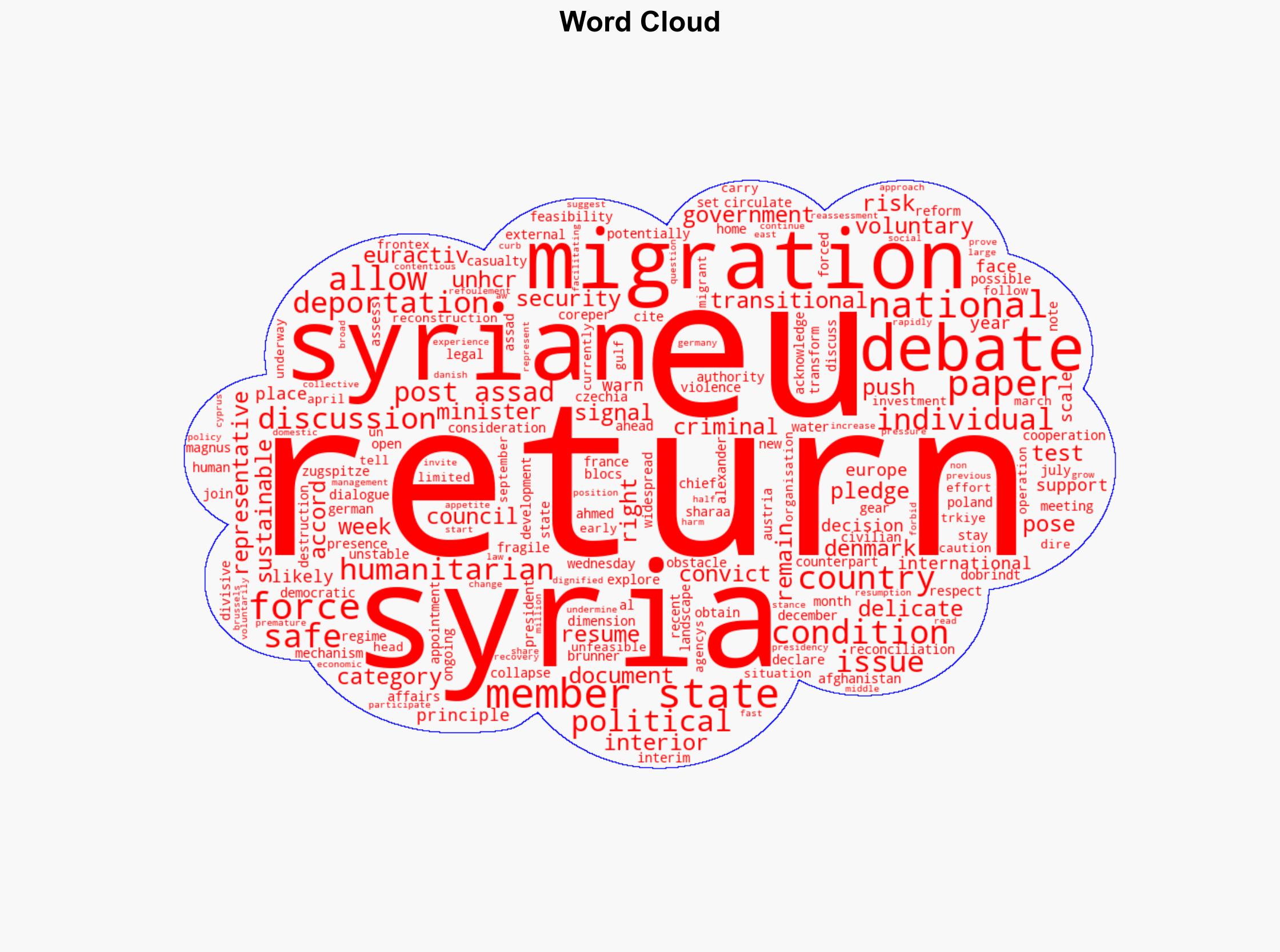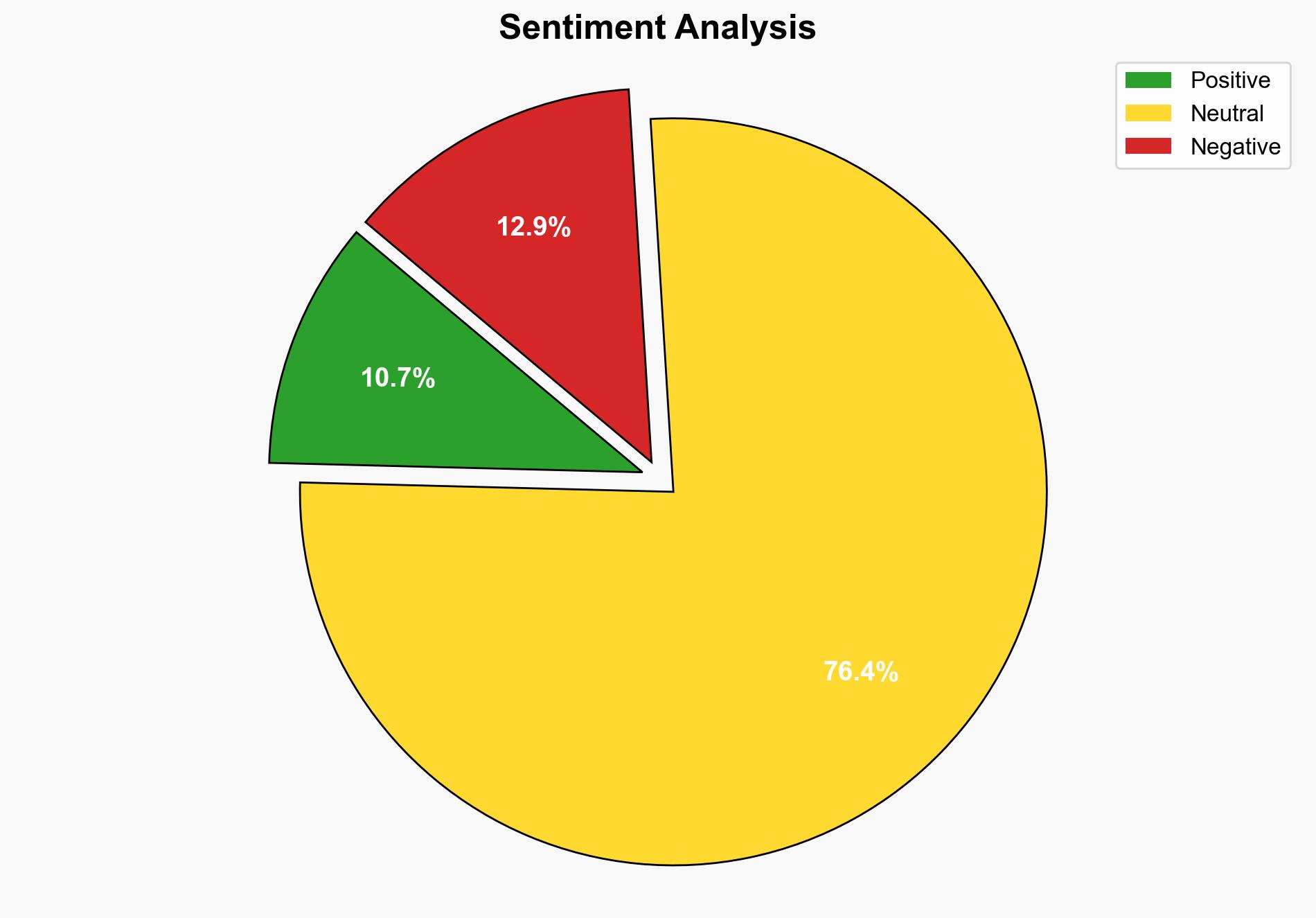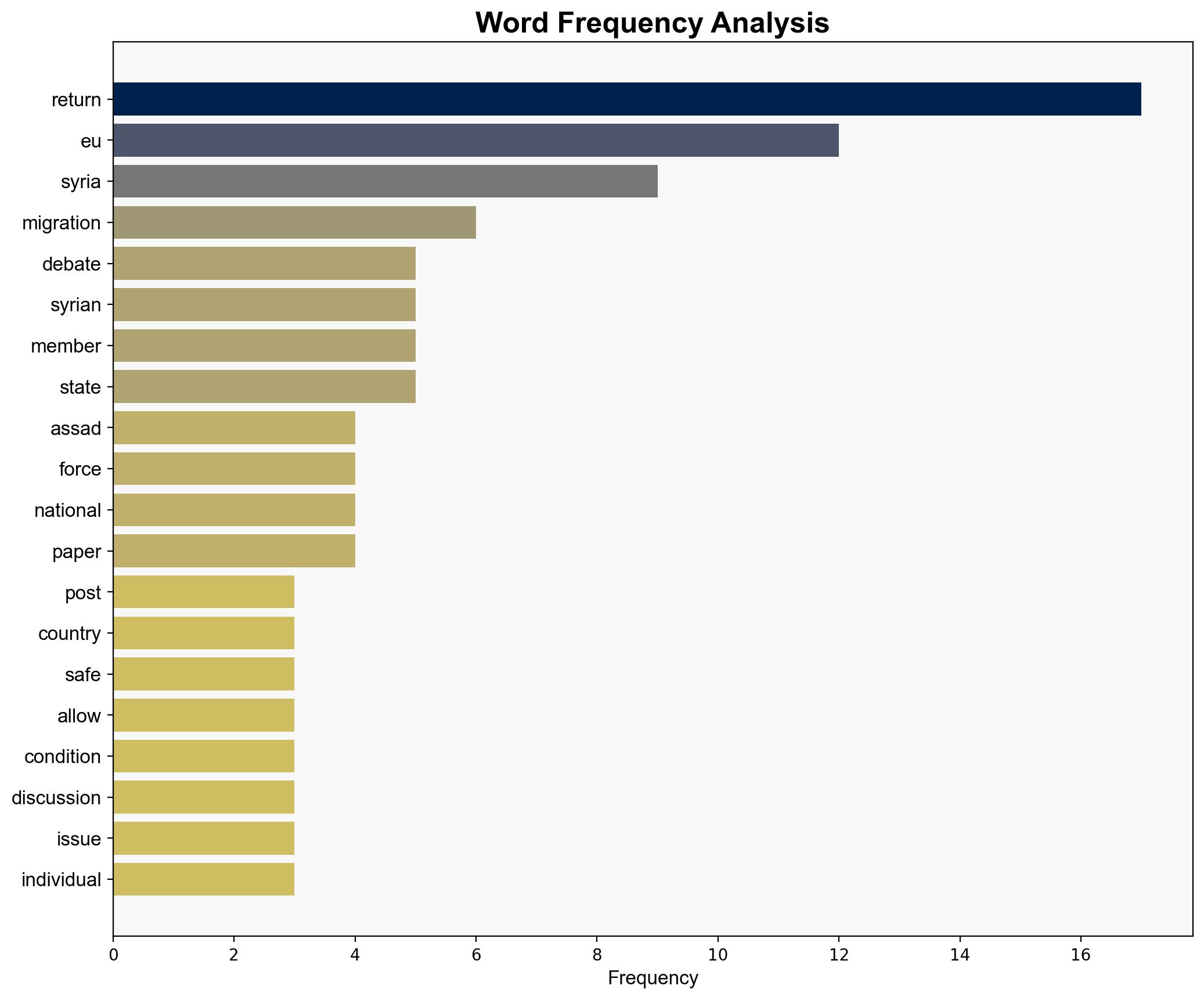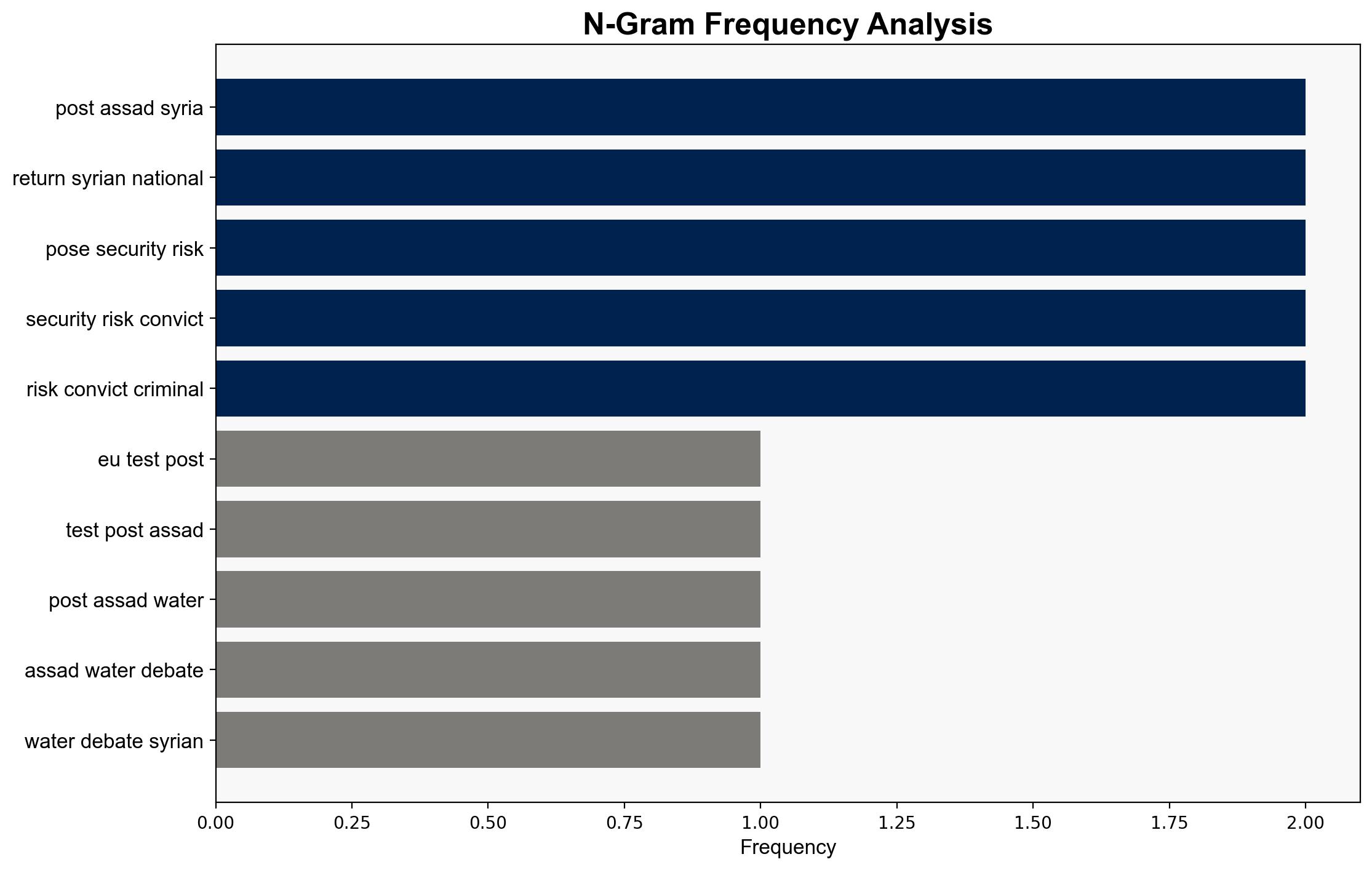EU tests post-Assad waters with debate on Syrian returns – EURACTIV
Published on: 2025-10-07
Intelligence Report: EU tests post-Assad waters with debate on Syrian returns – EURACTIV
1. BLUF (Bottom Line Up Front)
The EU is navigating a complex debate on the potential return of Syrian nationals post-Assad, with significant implications for migration policy and regional stability. The most supported hypothesis suggests a cautious approach due to ongoing instability in Syria. Confidence in this assessment is moderate, given the dynamic geopolitical landscape. Recommended action includes maintaining humanitarian principles while preparing contingency plans for potential shifts in Syrian governance.
2. Competing Hypotheses
Hypothesis 1: The EU will proceed with forced deportations of Syrian nationals deemed security risks, leveraging the transitional government in Syria as a stabilizing factor.
Hypothesis 2: The EU will refrain from forced deportations due to the fragile security situation in Syria and international humanitarian obligations.
Using Analysis of Competing Hypotheses (ACH), Hypothesis 2 is better supported. The ongoing violence and humanitarian concerns in Syria, as highlighted by UNHCR warnings, suggest that conditions are not yet conducive for safe returns.
3. Key Assumptions and Red Flags
Assumptions for Hypothesis 1 include the belief that the transitional government can quickly stabilize Syria. A red flag is the lack of concrete evidence supporting this stabilization. For Hypothesis 2, the assumption is that EU member states will prioritize humanitarian principles over domestic pressures to curb migration. A potential blind spot is underestimating the political pressure within EU countries to act swiftly on migration issues.
4. Implications and Strategic Risks
Proceeding with forced deportations could exacerbate regional instability and damage the EU’s international standing. Conversely, delaying returns may increase domestic political tensions within EU states. Economic impacts include potential strain on EU resources if migration pressures persist. Geopolitical risks involve strained relations with Middle Eastern partners and potential backlash from human rights organizations.
5. Recommendations and Outlook
- Continue diplomatic engagement with Syrian transitional authorities to assess stability and readiness for returns.
- Enhance support for humanitarian initiatives in Syria to improve conditions for voluntary returns.
- Scenario Projections:
- Best Case: Stabilization in Syria allows for safe, voluntary returns, reducing migration pressures.
- Worst Case: Premature deportations lead to increased regional conflict and humanitarian crises.
- Most Likely: Continued debate without immediate action, maintaining the status quo.
6. Key Individuals and Entities
Ahmed al-Sharaa, Alexander Dobrindt, Magnus Brunner.
7. Thematic Tags
national security threats, migration policy, humanitarian principles, regional stability





